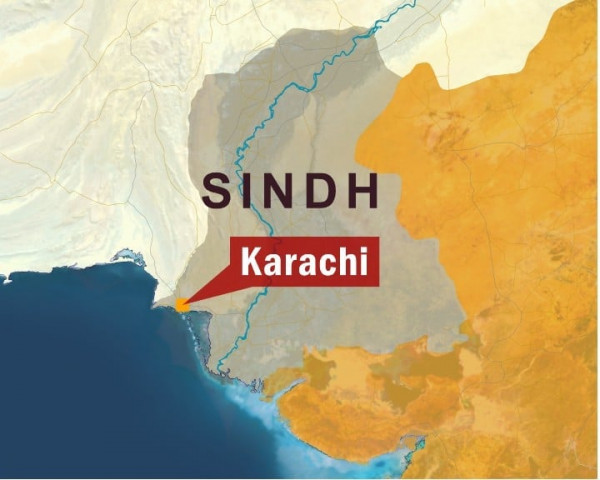Discrimination, not fear, keeps Pakhtun voters away
Lack of education adds to Pakhtun political disenfranchisement and awareness.

Declared one of the most sensitive areas, this neighbourhood in UC 4 of Orangi Town is an Awami National Party stronghold and mostly houses Pashto-speaking people - all who chose to remain indoors on Sunday after the party decided to boycott the PS-94 by-election.
Khattak insists, however, that her reasons for staying away were different. “Is this what politics is all about?” she demands in her son’s small office in Shaheen Public School. The school is run by her son Ashfaq Ahmed and was being used as a polling station. Despite this, the mother and son decided not to cast their vote. “Politics for me means better roads, clean water, access to healthcare and education and equal rights for all - none of which I have seen in my 57 years in this city. Be it the Muttahida Qaumi Movement, Pakistan Muslim League or ANP, no one is here to win our votes, they’re all here to use us for their dirty game.”
Ahmed agrees. “It’s all a sham,” he says, adding that even if the ANP had decided to contest, he would not have ‘wasted his energy’ because the Pakhtun candidate would not have stood a chance. Quickly turning to his dusty computer, he uses the Google Earth software to elaborate on what he understands only too well as the ‘politics of jurisdiction’.
In his opinion, the MQM, which started out as a party for Urdu-speaking people, is bound to sweep this by-election and most others in Karachi because after the 1988 elections, the jurisdiction of the entire city was defined in a manner that no single ethnicity would be able to register all its votes in one constituency.
“How can a small area of 1 sq km comprise voters of four to five constituencies? For instance, as residents of one lane of Ghausia Baloch Colony cast their votes for PS-94 today, those in the adjacent lane will stand and watch because they are registered with the PS-95 constituency.”
In such a scenario, many of the Pakhtuns of Faqeer Colony also stand divided. “The ANP’s decision to contest the elections was an unwise one in the first place. This boycott proves nothing. They would not have won the seat anyway.”
Currently, of the total Pakhtun population of 150,000 in UC 4, only 6,000 voters are registered. “Many of them,” says Khattak, who is also an educationist, “are not registered due to a lack of education in the community.” They do not understand the importance of their involvement in the political process, she adds.
“And those who do,” interrupts Ahmed, “are discouraged with how expensive the whole process is.”
Ahmed says he would have preferred politics over teaching, if only he knew a cheaper and more honest way to get a foothold into the system. “But I can’t afford to buy people’s votes and polling stations,” he says, “so I decided to lend my school premises during the election process instead. This is my contribution.”
Just as these words leave his mouth, he quickly reaches out to his personal drawer and flashes his Pakistani passport stamped with a US visa. “I am an optimist,” he remarks, “but the truth is I am also becoming increasingly frustrated with the ‘politics of ethnicity’ in this country and may soon decide to leave Pakistan for good.”
Published in The Express Tribune, October 18th, 2010.


















COMMENTS
Comments are moderated and generally will be posted if they are on-topic and not abusive.
For more information, please see our Comments FAQ